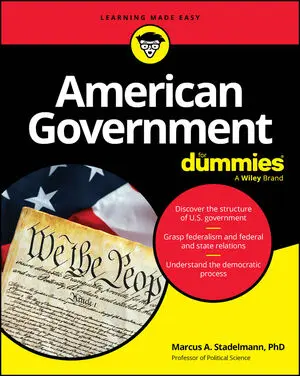Contributions to U.S. political campaigns are limited by the Federal Election Campaign Act (FECA), which is administered by the Federal Election Commission (FEC). The FECA, as amended by the Bipartisan Campaign Reform Act (2002), requires candidate committees, party committees, and political action committees (PACs) to file periodic reports disclosing the money they raise and spend. The FECA also places limits on contributions by individuals, corporations, and other groups to candidates, party committees, and PACs.
Campaign contribution limits for 2011-2012
Here are the FECA's 2011-2012 contribution limits.
| To each candidate or candidate committee per election | To national party committee per calendar year | To state, district & local party committee per calendar year | To any other political committee per calendar year | Special Limits | |
|---|---|---|---|---|---|
| Individual may give | $2,500 | $30,800 | $10,000 (combined limit) | $5,000 | $117,000 (overall biennial limit) |
| National Party Committee may give | $5,000 | No limit | No limit | $5,000 | $43,100 to Senate candidate per campaign |
| State, District & Local Party Committee may give | $5,000 (combined limit) | No limit | No limit | $5,000 (combined limit) | No limit |
| PAC (multi-candidate) may give | $5,000 | $15,000 | $5,000 (combined limit) | $5,000 | No limit |
| PAC (not multi-candidate) may give | $2,500 | $30,800 | $10,000 (combined limit) | $5,000 | No limit |
| Authorized Campaign Committee may give | $2,000 | No limit | No limit | $5,000 | No limit |
Source: Federal Election Commission Contribution Limits 2011-12
The FEC publishes a useful brochure on contributions, as well as a handy citizen’s guide.
Prohibited campaign contributions
The FECA prohibits certain contributions, including those on the following list. These prohibitions apply to all contributions, regardless of the type of contribution (gift of money, in-kind contribution, loan and so on); whether solicited or not; and how the money is ultimately spent (such as for advertising, office supplies or independent expenditures).
Corporations, labor organizations and national banks
Contributions by corporations, labor organizations and national banks are prohibited. Additionally, national banks and federally chartered corporations may not make contributions in connection with any election, including state and local elections. Contributions may, however, be made from political action committees or PACs established by corporations, labor organizations, national banks, and incorporated membership organizations.
Government contractors
Federal government contractors may not contribute to federal campaigns and the prohibition applies to sole proprietors who have entered into a contract with the federal government. Personal contributions by employees, partners, shareholders or officers of businesses with government contracts — or contributions from separate segregated funds established by corporations or labor organizations with government contracts — are not prohibited.
Foreign nationals
Foreign nationals lacking permanent residence in the U.S. may not contribute and campaigns may not solicit or accept contributions from them. This prohibition applies to all US elections; including federal, state and local elections.
Cash contributions
Contributions of cash (currency) more than $100 from one person are prohibited. Campaign committees must return any amount over $100 to the contributor.
Contributions in the name of another person
Contributions cannot be made in the name of another person and no person may knowingly assist someone in making or accepting a contribution in the name of another. No person may knowingly permit the use of his or her name to effect such a contribution.






